When Donald Trump stood at the White House podium and branded Nicolás Maduro a “narco-terrorist”, it felt like déjà vu. Days later, U.S. warships steamed into the Caribbean in what was billed as a massive anti-drug operation. For anyone with a memory of late–Cold War geopolitics, the scene rang a loud bell: Washington versus a Latin American strongman, accused of trafficking cocaine and defying U.S. power. Was Maduro about to become the next Manuel Noriega?
The comparison is tempting. Three decades ago, Noriega ruled Panama with an iron fist, running drugs and laundering money while pocketing CIA paychecks. When he fell out of favor, the U.S. indicted him, branded him a criminal, and sent 30,000 troops into Panama City. In just a few weeks, Noriega was in shackles on a plane to Miami.
Today, Maduro finds himself in a similar bind: indicted by U.S. prosecutors, accused of turning Venezuela into a hub for narcotics, and increasingly isolated from the West. Trump even put a price tag on his head—raising the bounty for Maduro’s capture to a staggering $50 million. The dream scenario in Washington is obvious: Maduro dragged from his palace and flown into exile, just like Noriega.
But Venezuela is not Panama, and 2020 is not 1989.
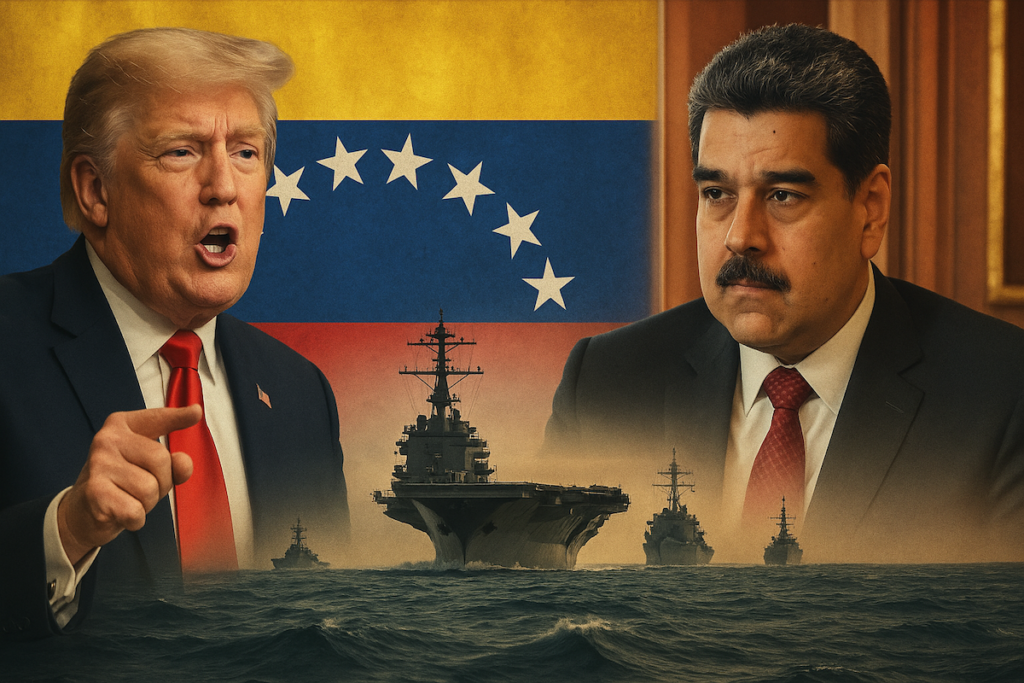
The Noriega Playbook
For Washington, Noriega was the perfect villain: corrupt, ruthless, and expendable. The U.S. invasion of Panama—Operation Just Cause—was quick, decisive, and framed as both a liberation and a message. Noriega’s downfall became a textbook example of how America could still project power in its own hemisphere.
It’s easy to see why U.S. policymakers might dust off that script for Venezuela. Maduro’s government has been accused of working hand-in-glove with Colombian guerrillas to move cocaine, all while presiding over one of the worst economic collapses in modern history. Millions of Venezuelans have fled, creating a refugee crisis across Latin America. The imagery lines up neatly: a dictator, drugs, and a broken state.
Why Venezuela Is Different
Scratch the surface, though, and the differences between Maduro and Noriega are glaring.
- Global Stakes: Panama was small, isolated, and strategically tied to the canal. Venezuela, by contrast, sits on the world’s largest proven oil reserves and has friends in powerful places. Russia supplies its weapons, China bankrolls what’s left of its economy, and Iran has stepped in with fuel. Any U.S. military move risks igniting a wider showdown.
- The Humanitarian Disaster: Noriega’s Panama was corrupt but stable. Venezuela is a humanitarian implosion: hyperinflation, rolling blackouts, empty hospitals, and a refugee exodus bigger than Syria’s. It’s not just a narco-dictatorship—it’s a failed state bleeding into its neighbors.
- The Military Equation: Noriega’s forces folded in days. Venezuela’s armed forces are larger, better armed, and deeply entwined with the survival of Maduro’s regime. Any invasion would be bloody, protracted, and politically explosive.
Trump’s Gamble
By calling Maduro a narco-terrorist, raising the bounty on his head to $50 million, and parking warships in his backyard, Trump was signaling toughness, not necessarily plotting an invasion. It was geopolitical theater—projecting strength at home, reassuring allies in Latin America, and keeping Maduro off balance.
But there’s another layer. After the failed Alaska Summit with Vladimir Putin, where Trump left empty-handed, some in Washington see Venezuela as a proxy battleground—a way to “get even” by striking at one of Moscow’s key allies in the Western Hemisphere. In this light, Maduro isn’t just a dictator to be toppled; he’s a pressure point in the larger U.S.-Russia rivalry.
The catch? Trump’s own political base. The MAGA movement remains deeply skeptical of foreign wars. Many of Trump’s supporters see overseas entanglements as a betrayal of his “America First” promise. An invasion of Venezuela could alienate the very voters he depends on, even if it thrilled hawks in Washington.
The Ghost of Panama
In the end, Maduro is no Noriega. He may share the same label—a dictator accused of drug trafficking—but Venezuela is a bigger, more complicated beast. Panama was a quick strike. Venezuela would be a quagmire.
Still, the shadow of 1989 lingers. For many in Latin America, U.S. warships off the coast feel like history repeating itself, another reminder of Washington’s long tradition of toppling governments south of the border. For Trump, the Noriega playbook was a tempting piece of political theater. But for Venezuela, it’s a dangerous ghost—one that could haunt the region if Washington mistakes the past for the present.
And, precisely because of the differences highlighted between Panama and Venezuela, if the US does choose to intervene militarily, it is very likely that it will not put “boots on the ground,” but will resort only to airstrikes and long-range missiles. A surgical operation, without direct occupation, would be the only way for Washington to try to weaken Maduro without sinking into an open and costly conflict.
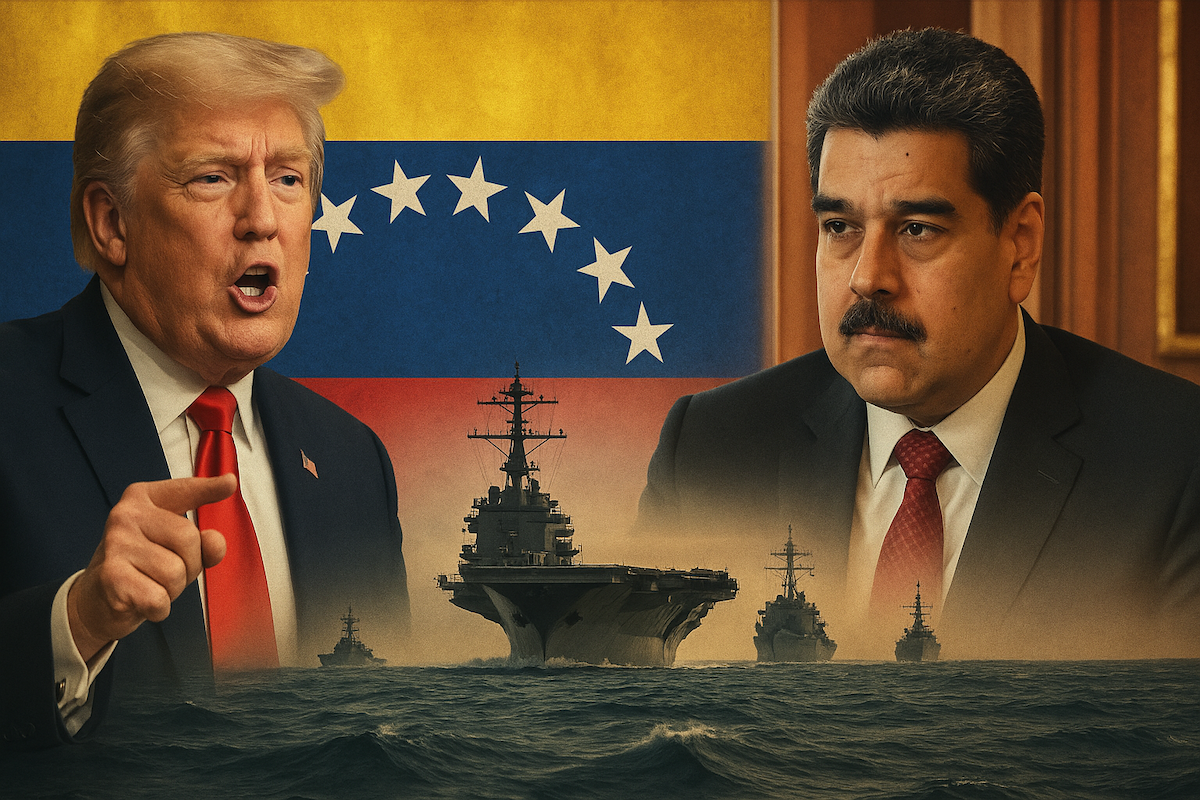

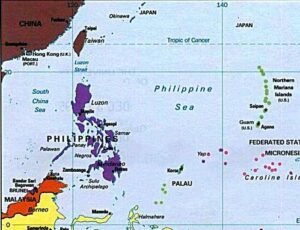
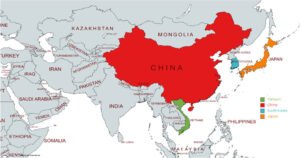

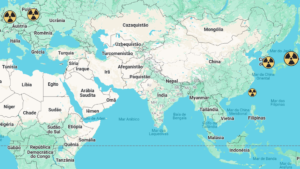




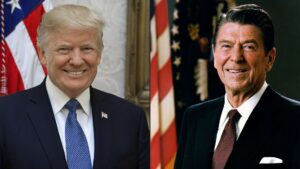
Be First to Comment